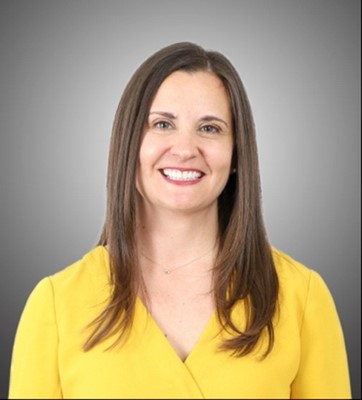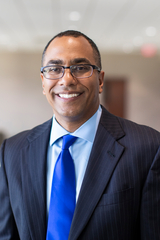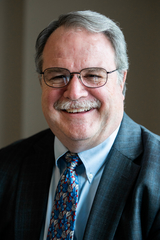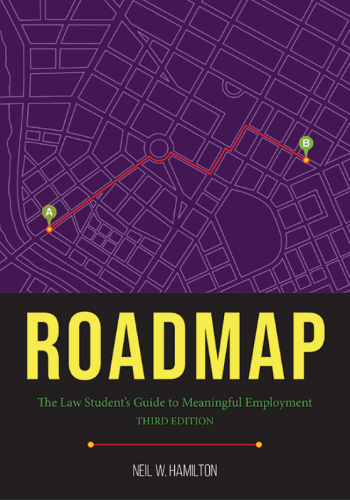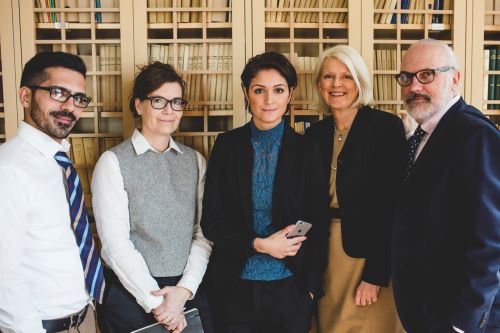By: Megan Bess, Director of the Externship Program & Assistant Professor of Law, University of Illinois Chicago School of Law
Legal education has fully entered a new era of recognizing the importance of professional identity formation (PIF). All law schools now have programs in place to support professional identity formation across curricular and extracurricular programming.[1] Despite this, legal educators do not have much evidence about the impact of law school experiences on student professional identity formation. Other professions, notably medicine, have gathered more data about the major transitions students experience on their paths from student to professional. I’ve written before about the importance of Professor Neil Hamilton’s research on the significance of 1L experiences on law students’ thinking and acting like lawyers.[2] His research revealed how work experience during the summer following a student’s 1L year significantly impacts the PIF process.
Past studies of lawyers and law school graduates suggest experiential learning is highly valuable in preparing students for legal practice.[3] To the extent that legal educators can gather more data about the impact of experiences on students, this information can help schools better develop professional identity formation during key moments. Improving the quality of support for experiences that are highly formative for professional identity starts with educating students and educators about their formative value.
Last year I sought to gather more evidence about the impact of experiential learning and other school experiences on student professional identity formation. To that end, I conducted a research study of graduating students from the University of Illinois Chicago School of Law to assess their perceptions of how major law school events impacted their professional identity formation. Scores were calculated by assigning the following values to responses regarding impact: no impact=1; some impact=2, moderate impact=3; substantial impact=4; great impact=5. Two experiences stood out as particularly impactful. Over 50% of respondents rated both legal employment during their upper level (2L and 3L) years and summer legal employment following 2L year (or 3L year for part-time students) as having a great impact (the highest level of impact) on their professional identity formation.[4]
This table lists average results for all activities measured with five or more respondents. I present a short analysis of these results below.
Experiences Listed in Order of Average Impact Score
| Summer employment after 2L or 3L year | 4.5 |
| Upper class (2L, 3L) legal employment during academic year | 4.4 |
| Working with attorney mentor | 4.4 |
| First-time externship during 2L or 3L academic year | 4.2 |
| Summer employment after 1L year | 4.2 |
| First-time externship summer after 2L or 3L year | 4.2 |
| First-time externship summer after 1L year | 4.1 |
| Simulation course | 4 |
| Faculty research assistance | 4 |
| Pro bono work | 3.9 |
| Authoring a journal note | 3.9 |
| Participating in a journal | 3.6 |
| First-time clinic during 2L or 3L academic year | 3.5 |
| Appellate advocacy course | 3.4 |
| Search for post-graduation employment | 3.4 |
| Moot court/mock trial | 3.4 |
| Drafting course | 3.2 |
| 1L year second term finals | 3.1 |
| 1L year first term finals | 3 |
| Leadership position | 3 |
| Bar application | 2.9 |
| First Lawyering Skills assignment | 2.8 |
| 2L year final exams | 2.7 |
| 3L year final exams | 2.6 |
| Orientation | 2.3 |
Unsurprisingly, when taken in context with Professor Hamilton’s research, work outside of school is uniquely impactful on professional identity formation. Aside from working outside of law school, most of the highest rated experiences fall under the umbrella of experiential education. Clinic and externship experiences highly impact student professional identity formation.[4] Schools can also use data about the impact of working with mentors and assisting faculty with research to maximize these opportunities for students. Students also place relatively high value on simulation courses, journal involvement, and moot court/mock trial participation. As research emerges on the impact of these and other law school experiences on professional identity formation, schools can ensure a high level of student access to these important experiences and adjust professional identity formation strategies to better support students.
I present all data and a more robust analysis of my results in an article forthcoming in the Marquette Law Review, available now on SSRN. I intend to recreate this survey at my law school and hopefully other law schools to gather more data. If anyone else is interested in conducting similar research at your institutions, I would love the chance to collaborate. Please contact me at mbess@uic.edu with comments or questions.
[1] ABA Section on Legal Education and Admissions to the Bar, Standards and Rules of Procedure for Approval of Law Schools 2024-25 (2024), Standard 303, https://www.americanbar.org/content/dam/aba/administrative/legal_education_and_admissions_to_the_bar/standards/2024-2025/2024-2025-standards-and-rules-for-approval-of-law-schools.pdf.
[2] Transitions Unexplored: A Proposal for Professional Identity Formation Following the First Year, 29 Clinical L. Rev. 1 (2022); Transitions, Professional Identity Formation, and the Significance of Summer After 1L Year, University of St. Thomas Holloran Center Professional Identity Formation Blog (Sept. 16, 2022)
[3] See, e.g., Alli Gerkman & Logan Cornett, Inst. For the Advancement of the Am. Legal Sys., Foundations for Practice, Hiring the Whole Lawyer: Experience Matters 5 (2017), available at https://iaals.du.edu/publications/foundations-practice-hiring-whole-lawyer-experience-matters; 2010 Survey of Law School Experiential Learning Opportunities and Benefits (NALP and the NALP Foundation, 2011).
[4] While few law students who participated in clinic responded to the survey, notably nearly every student who did ranked the experience as having a moderate, substantial, or great impact on their professional identity development.

